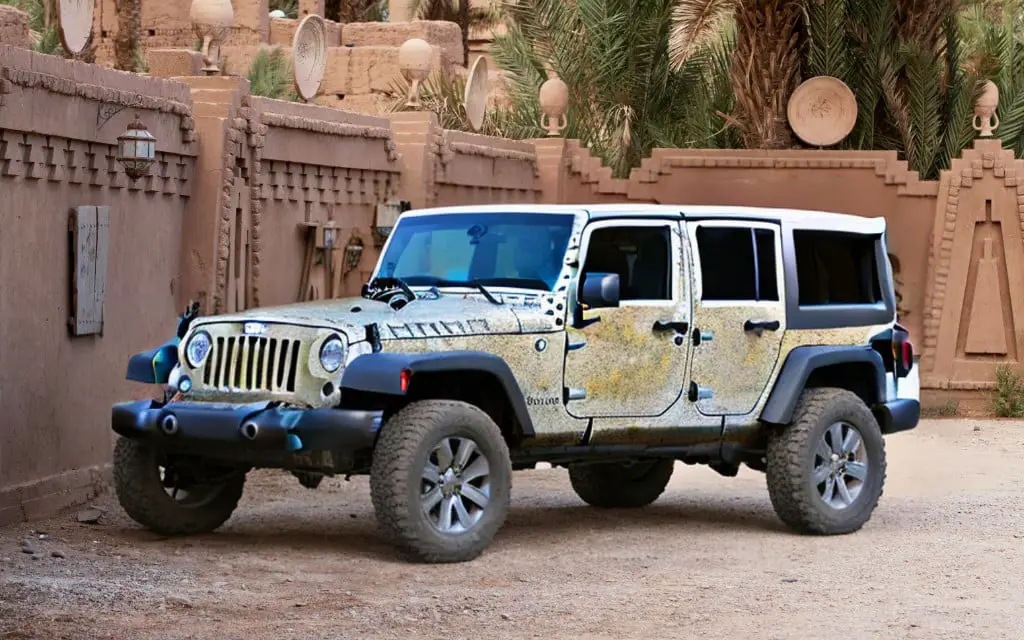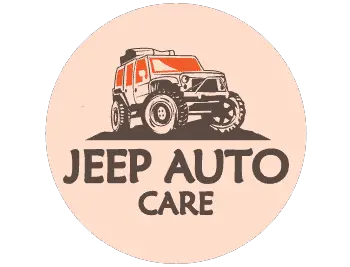Jeep adventures are all the rage, and I’m here to help you share the excitement of these rugged vehicles! In this blog post, I’ll explore the essential factors you need to consider before buying an old Jeep, from engine options to off-roading capabilities.
I’ll also compare the most popular Jeep models, discuss modification history and mileage, and discuss must-have accessories for your off-road escapades.
Also, I’ll share a comparison chart with a resale value range that’ll make it easier to find the perfect Jeep for your lifestyle. So buckle up, fellow adventurers—it’s time to embark on the journey of finding your dream Jeep!
Table of Contents
Things You Should Consider Before Buying a Jeep (Old)
1. Versatility and off-roading capabilities
Let’s dive into the versatility and off-roading capabilities before buying an old Jeep. You should choose a Jeep that can tackle any terrain with ease. Look for features such as high ground clearance, skid plates, and locking differentials to ensure your ride stays smooth and steady.
The next thing to consider is the Jeep’s towing capacity. Will it be able to haul your trusty kayak, camping gear, or other adventure essentials? The more towing power, the better!
You should also make sure your Jeep is cozy. Heated seats and a user-friendly infotainment system will keep you warm and entertained during those long drives. Don’t forget about storage!
To help you find the perfect Jeep, here is a quick comparison chart to get you started:
| Feature | Essential for off-roading | Essential for versatility |
| High ground clearance | Yes | Yes |
| Skid Plates | Yes | No |
| Locking Differentials | Yes | No |
| Towing Capacity | No | Yes |
| Heated Seats | No | Yes |
| Infotainment System | No | Yes |
| Ample cargo space | No | Yes |
2. Inspect the undercarriage
Inspecting the undercarriage of a Jeep before buying it can save you many headaches! It’s like a hidden world, hiding secrets about the Jeep’s history and condition. Now, you might be wondering how to inspect the undercarriage. No worries, I’ve got you covered! First, grab a trusty flashlight, and then follow these simple steps:
- Check for rust: Look for any signs of rust or corrosion on the frame, suspension, and exhaust system.
- Examine the skid plates: Make sure they’re securely attached and not damaged, as they protect vital components.
- Inspect the axles and differentials: Keep an eye out for leaks or damaged seals, which could mean costly repairs.
- Peek at the suspension: Ensure there are no bent or damaged parts, as this could affect the ride quality and safety.
- Assess the exhaust system: Double-check for any leaks, holes, or excessive corrosion.
By carefully inspecting the undercarriage, you’ll be able to spot any potential issues before they become major problems. Remember, knowledge is power, and it’s better to be safe than sorry when investing in your dream Jeep!
3. Tires leak
Leaks in tires make it crucial to check them out before making a purchase. To avoid any “tire-terrible” situation, you should give those rubbery pals a thorough inspection. Tires are like the shoes of your Jeep; they need to be comfy and reliable!
But how do you check for tire leaks? No worries. Here’s a nifty little checklist to help you out:
- The visual check: Inspect each tire for cracks, cuts, and bulges. You don’t want any sneaky leaks hiding in there!
- The Pressure Test: Grab a tire pressure gauge and make sure the tire pressure matches the recommended PSI (that’s pounds per square inch for your non-car buffs).
- The Water Test: Mix a bit of soap with water and spray it on the tire. If you see bubbles forming, you’ve found a leak.
- The Penny Test: Stick a penny into the tire tread with Honest Abe’s head facing down. If you can see the top of his head, it’s time to wave goodbye to those tires.
With these simple steps, you can confidently buy your Jeep without worrying about any “tired” surprises.
4. Modifications history
If you’re at the dealership with the Jeep of your dreams, you need to know its past before you get too cozy. That’s where the modification history comes in!
Modifications History is a treasure map, with each change made to the Jeep a clue to uncover. Did someone install a lift kit? Or maybe some gnarly off-road tires? Knowing these details helps you avoid surprises (and potential repair bills) down the road. Also, it gives you the inside scoop on what kind of adventures your Jeep had before it became yours.
So, how can you know about this buried treasure? It’s simple! Just ask the seller for a record of modifications or check online forums for discussions about your specific model. And remember, knowledge is power, especially when it comes to your future off-road escapades.
5. Mileage stats
By checking out the mileage on that Jeep you’ve been eyeing, you’ll be able to estimate its lifespan and the potential maintenance costs coming your way. Trust me, it’s like having a crystal ball!
Now, you might be wondering how to check those magical numbers. Well, grab your detective hat and hop online! Websites like Fuelly or the EPA’s fuel economy site can give you a pretty good idea about the average miles per gallon (MPG) of different Jeep models. Don’t be shy about asking the seller for maintenance records; they’re like a secret diary for your future Jeep!
So, before you take the plunge and buy that shiny Jeep, make sure you’ve done your mileage homework. It’s like getting to know your future best friend, and it’s bound to save you some headaches (and cash!) down the road.
6. Rust Spots
Rust is like the sneaky villain in our Jeep adventures, lurking in the shadows, ready to pounce on our unsuspecting wallets. So, before you dive headfirst into buying that dreamy Jeep, let’s explore why and how to check for those pesky rust spots.

Rust is like that annoying classmate who won’t stop copying your homework. It can damage your Jeep’s metal parts, turning them into crumbly, unsafe messes. And trust me, nobody wants their Jeep to crumble like a cookie while off-roading!
That’s why you should check for rust spots before sealing the deal on your new four-wheeled companion.
How do I check them? Grab a flashlight, put on your detective hat, and crawl under that Jeep. Inspect the frame, suspension, and axles for any signs of rust, making sure to look for sneaky spots where dirt and moisture can hide.
Do Older Jeeps Hold Their Value?
Who doesn’t love a good ol’ Jeep, right? But the question is, do older Jeeps hold their value? Those tough, rugged machines have a special place in the hearts of car enthusiasts, and for good reason.
Older Jeeps, like the iconic CJ and the ever-popular Wrangler, are known for their durability and off-road capabilities. No mountain is too high, and no river is too wide! And it’s not just about their adventurous spirits. Older Jeeps also have a certain nostalgic charm that makes them valuable to collectors.
But wait, Jeeps are like LEGO sets for grown-ups; they’re super easy to customize and upgrade. With a bit of love and elbow grease, your old Jeep could be the talk of the town or at least the off-road club. Also, there are strong communities of Jeep lovers who’ve got each other’s backs, making it even more fun to own one.
So, if you’re thinking about getting an older Jeep, go for it! They’re a solid investment and a whole lot of fun. Just remember to give them some TLC, and they’ll be sure to hold their value.
Now, to help you get started on your Jeep adventure, here’s a handy little table of some classic Jeep models and their average resale values:
| Jeep Model | Used Duration | Resale value% (from the new price) |
| 2021 Jeep Wrangler | 5 years after | 55% |
| 2021 Jeep Grand Cherokee | 5 years after | 45% |
| 2021 Jeep Compass | 5 years after | 44% |
| 2021 Jeep Cherokee | 5 years after | 43% |
Frequently Asked Questions
While old Jeeps may have some issues, they are generally easier to fix due to their simple mechanics. The older Jeeps had basic engines and parts, which made them easier to diagnose and repair. Finding replacement parts for old Jeeps may be difficult as they are no longer in production. Additionally, newer Jeeps have more advanced technology, which means that repairs may require specialized equipment and knowledge. Ultimately, the ease of fixing a Jeep depends on the specific model and age.
Fuel efficiency in Jeeps varies based on the model and engine type. While Jeeps are generally less fuel-efficient compared to sedans or hatchbacks, newer models have seen improvements in this area. Compare the MPG of the specific Jeep model with other vehicles in its class.
Jeeps are well-known for their off-roading capabilities. They often outperform competitors due to features like higher ground clearance, strong 4×4 systems, and rugged suspension. However, it’s essential to compare specific models and trim levels to ensure you’re getting the best off-road vehicle for your needs.
The Bottom Line
That’s it for my guide on what you need to know before buying an older Jeep. I hope you found this information useful and informative. Remember to carefully consider all aspects of purchasing an older vehicle, and never hesitate to get a professional opinion.
Moreover, try to thoroughly inspect the vehicle, consider the cost of repairs, and factor in maintenance and fuel expenses.
Happy hunting for your dream Jeep!
